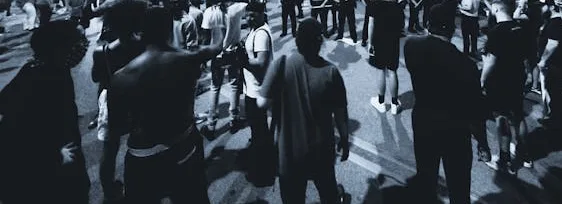Following the rape and murder of a postgraduate doctor, healthcare professionals intensify protests, urging the West Bengal government to improve security in hospitals
In a powerful display of solidarity and desperation, junior doctors in West Bengal resumed a total strike on October 1, demanding urgent safety measures after the tragic rape and murder of a postgraduate trainee doctor. The victim, a young woman working at RG Kar Medical College and Hospital in Kolkata, was attacked on August 9, sparking outrage and fear among her colleagues.
The West Bengal Junior Doctors’ Front organized the renewed strike after an eight-hour meeting where they discussed their grievances and formulated a list of ten demands aimed at ensuring their safety within medical establishments. The striking doctors argue that the government must take immediate action to strengthen hospital security, improve health infrastructure, and eliminate the culture of threats and political interference that pervades their workplaces.
“We are compelled to return to a full cease work starting today,” said a representative from the junior doctors’ group. “Unless we receive clear action from the government on safety, patient services, and the politics of fear, we will have no choice but to continue our full strike.”
Embed from Getty ImagesThis latest protest marks a continuation of their previous demonstrations, which began after the horrific incident involving their colleague. On September 21, the doctors had partially resumed their duties following a 42-day agitation, yet their concerns about security remained unresolved.
The doctors expressed frustration over the lack of tangible responses from the government regarding their demands. Aniket Mahato, a junior doctor involved in the protest, stated, “We do not see any positive approach from the state government to fulfill our demands for safety and security. Today is the 52nd day of the protest, and we are still being attacked without any serious attempts to keep the promises made during our meetings with Chief Minister Mamata Banerjee.”
As the junior doctors march in solidarity, holding torch rallies and rallying support from the community, they highlight a troubling reality facing healthcare professionals in India. The repeated threats to their safety and the emotional toll of working in an environment rife with fear underscore the urgent need for systemic reforms in the healthcare system.
With the support of medical associations and various civil society groups, the junior doctors aim to amplify their message, urging the government to prioritize their safety and well-being. As the protests continue, the doctors remain committed to their fight for a safe working environment, determined to honour the memory of their colleagues while advocating for change.
Analysis:
Political Perspective: The tragic death of the young doctor has thrust the West Bengal government under scrutiny, raising questions about its commitment to safeguarding healthcare professionals. The junior doctors’ strike underscores a significant political issue, as their demands for enhanced security and infrastructure come at a time when public trust in government institutions is wavering. Chief Minister Mamata Banerjee now faces increasing pressure to take decisive action that prioritizes the safety of healthcare workers and addresses the broader systemic issues that contribute to violence against women in India.
Social Perspective: The ongoing protests reflect deep-rooted societal issues surrounding gender-based violence and the treatment of women in India. As junior doctors rally for their rights, their plight resonates with a broader movement advocating for women’s safety across the nation. This event has ignited conversations about the necessity of improving hospital safety protocols, as well as the urgent need for a cultural shift in how society addresses violence against women. The protests serve as a catalyst for societal change, urging individuals and institutions to reassess their roles in combating gender violence.
Racial Perspective: While the immediate context of the junior doctors’ protests does not explicitly revolve around race, it is essential to recognize the intersectionality of gender and race in discussions of safety and violence. Marginalized communities often bear the brunt of systemic violence and discrimination, and the failure to address these disparities can perpetuate cycles of violence against women of color. Ensuring that all voices are heard, especially those from disadvantaged backgrounds, is vital in creating effective policies and support systems to safeguard healthcare professionals and the community.
Gender Perspective: The events surrounding the tragic rape and murder of the trainee doctor highlight the pervasive issue of gender violence in India. Women in the medical field, like many others, face unique challenges that can compromise their safety and well-being. The junior doctors’ protests demand not only enhanced security measures but also a broader societal acknowledgement of the systemic issues contributing to gender-based violence. This incident may galvanize further action towards establishing more protective policies for women across various sectors.
Economic Perspective: The economic ramifications of the junior doctors’ strike extend beyond immediate healthcare services. With hospitals facing disruptions in patient care, the strike has the potential to impact the healthcare system’s overall efficiency and quality. Additionally, the economic costs of addressing security and infrastructure concerns may place further strain on government resources. Ensuring a safe environment for healthcare workers is not only a matter of ethical responsibility but also crucial for maintaining the integrity and viability of the healthcare system in West Bengal
